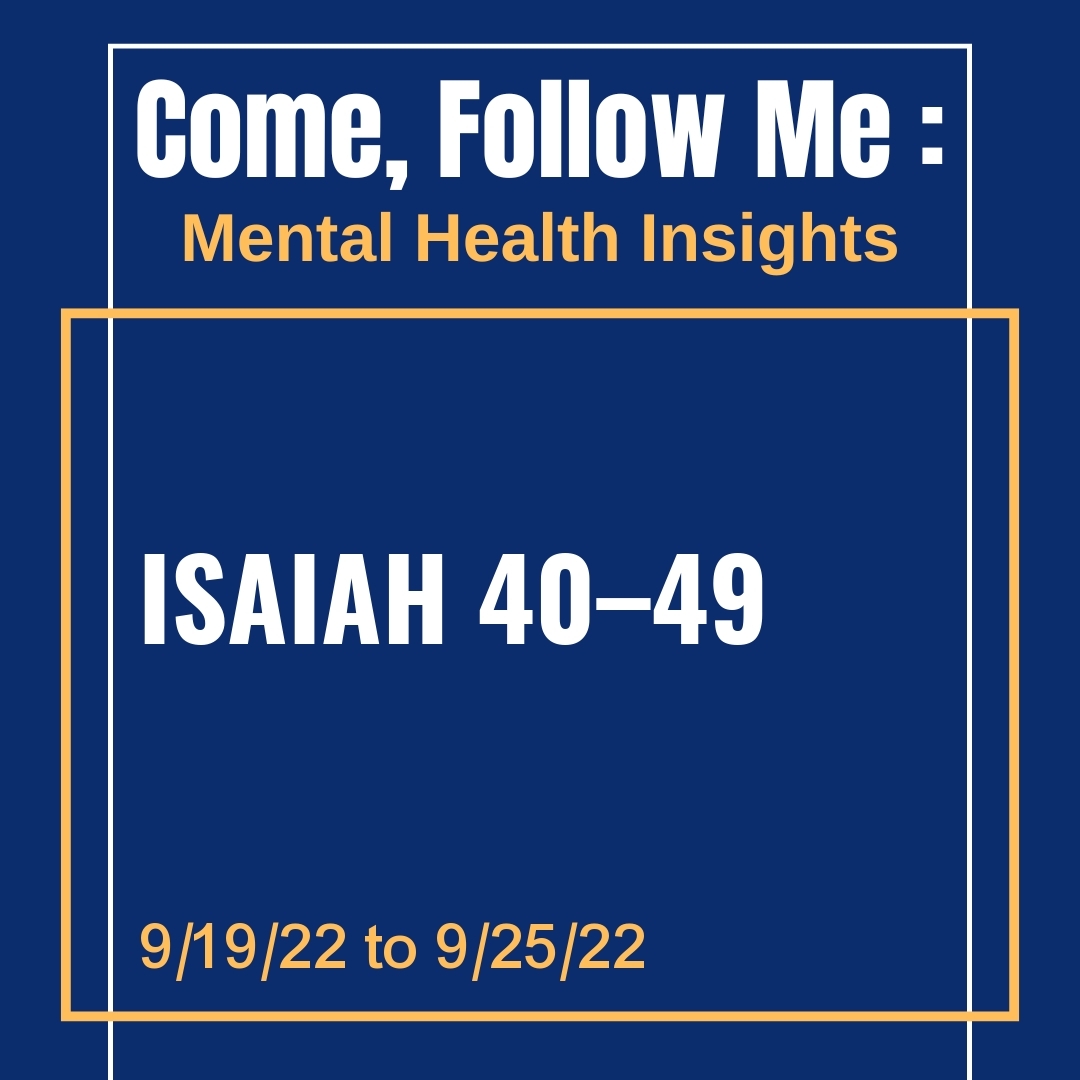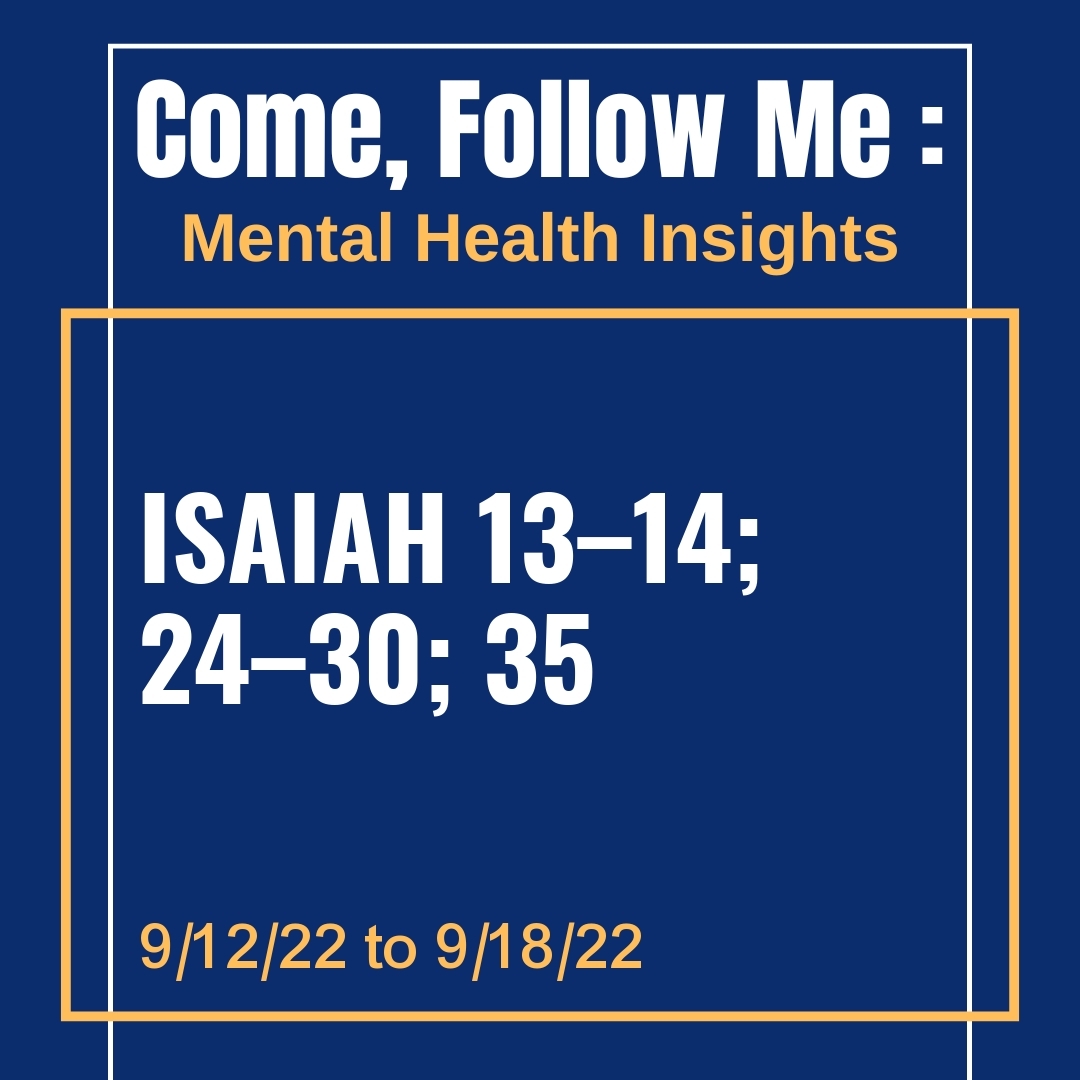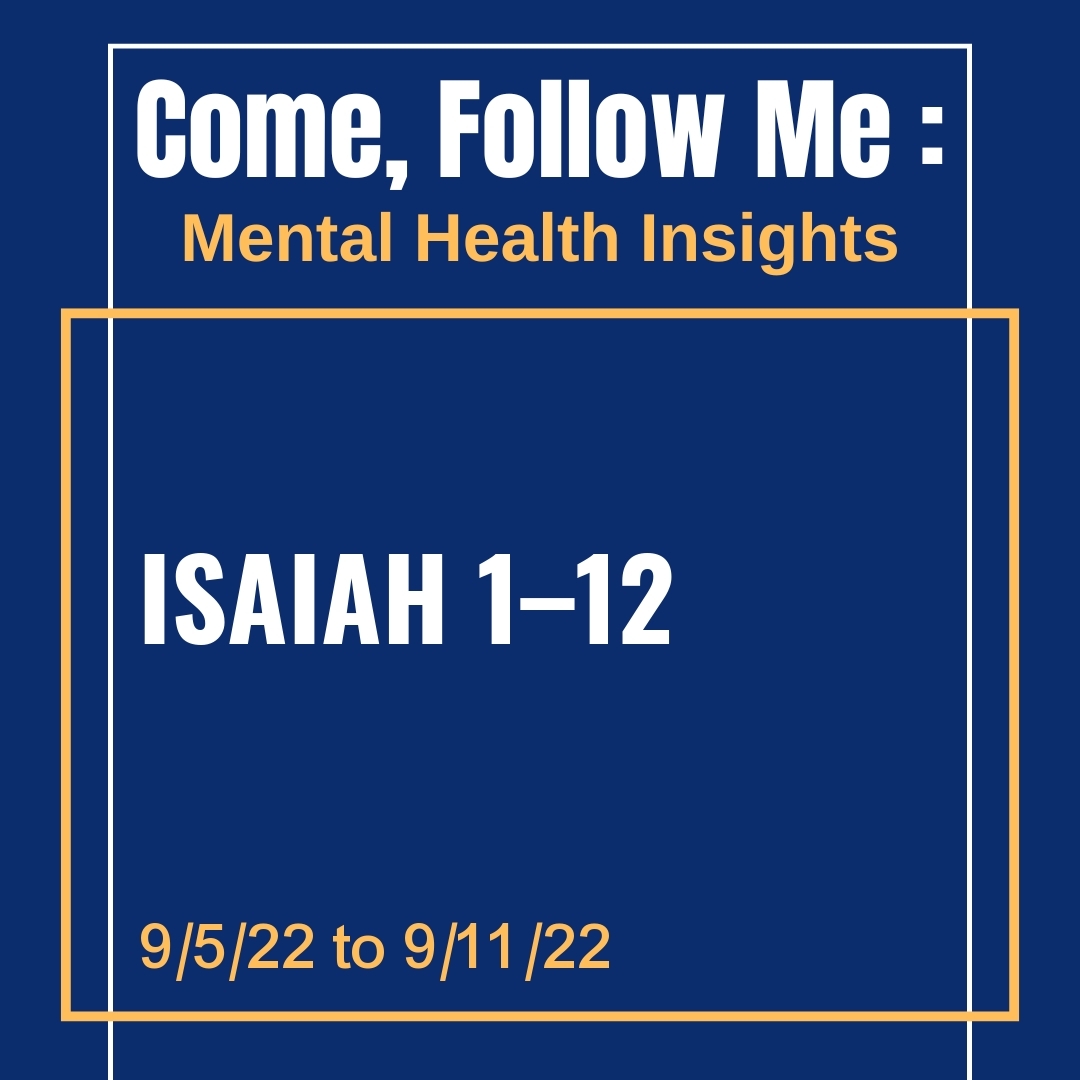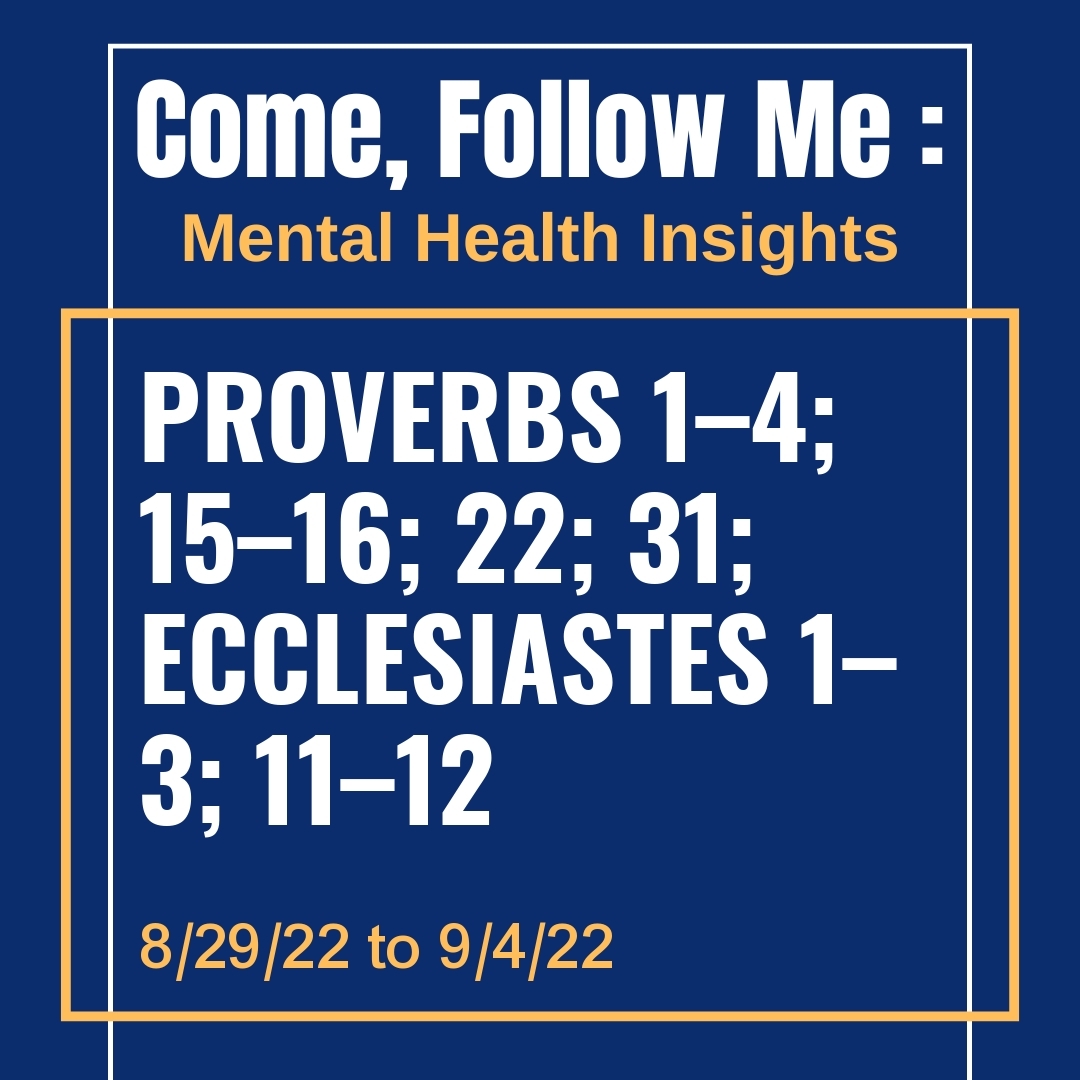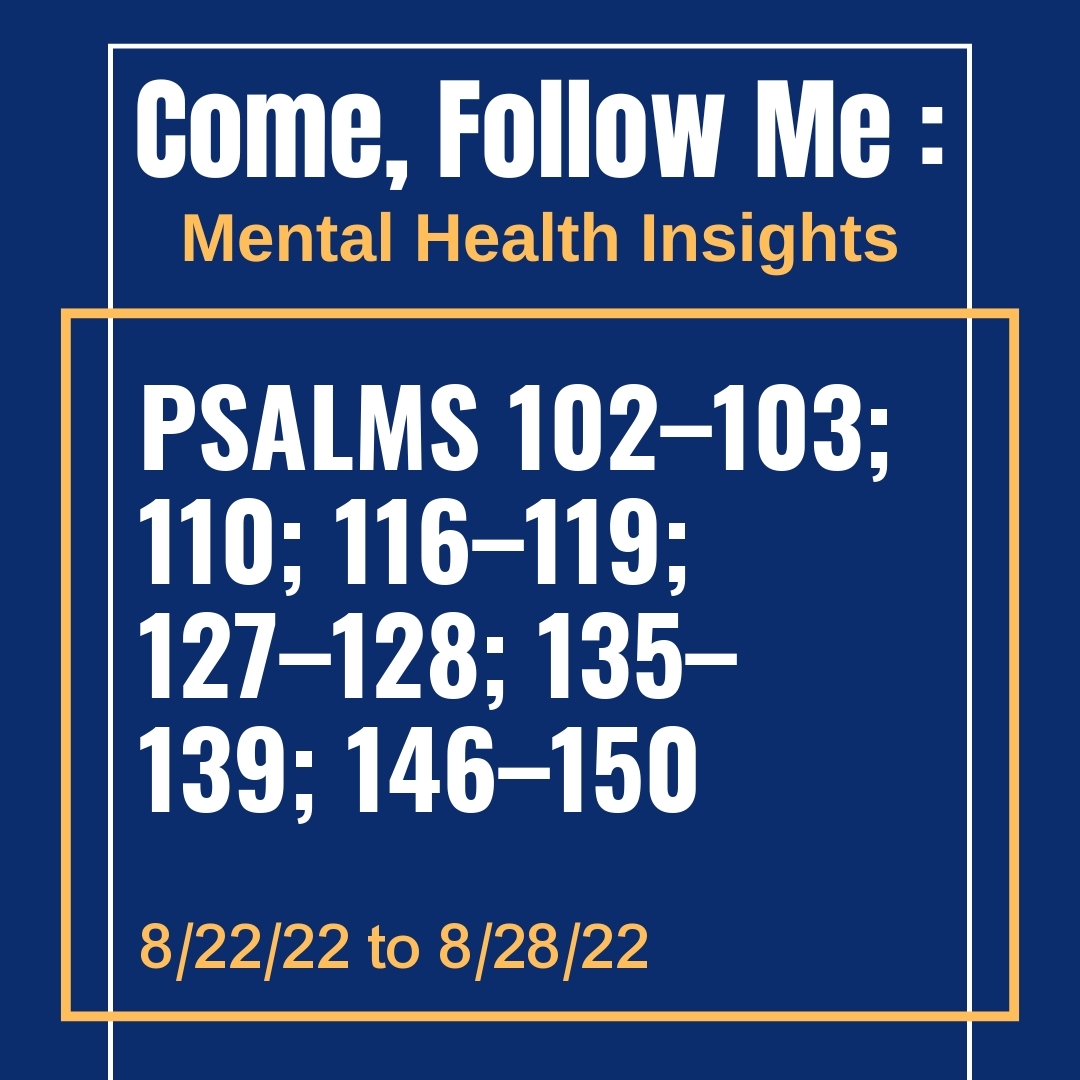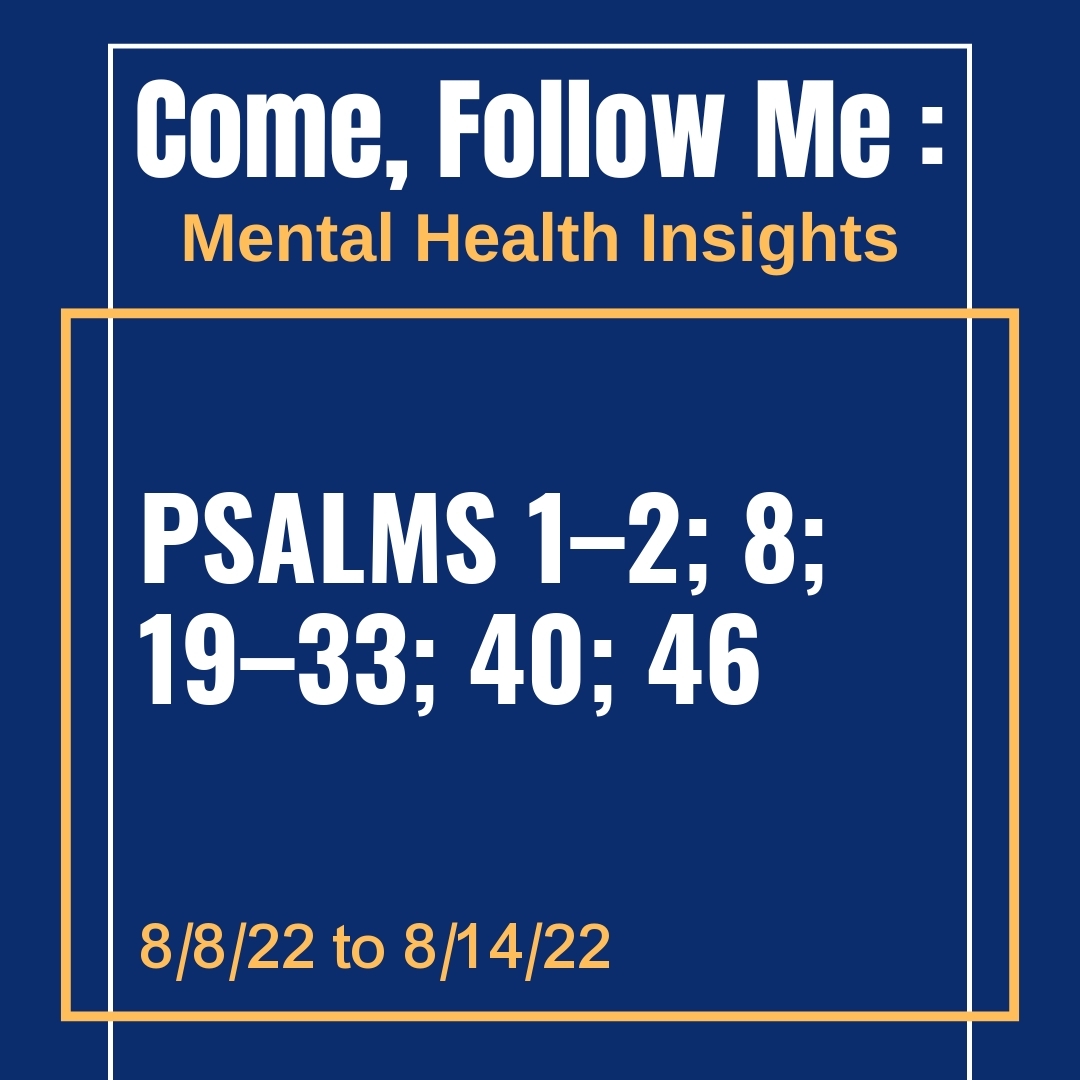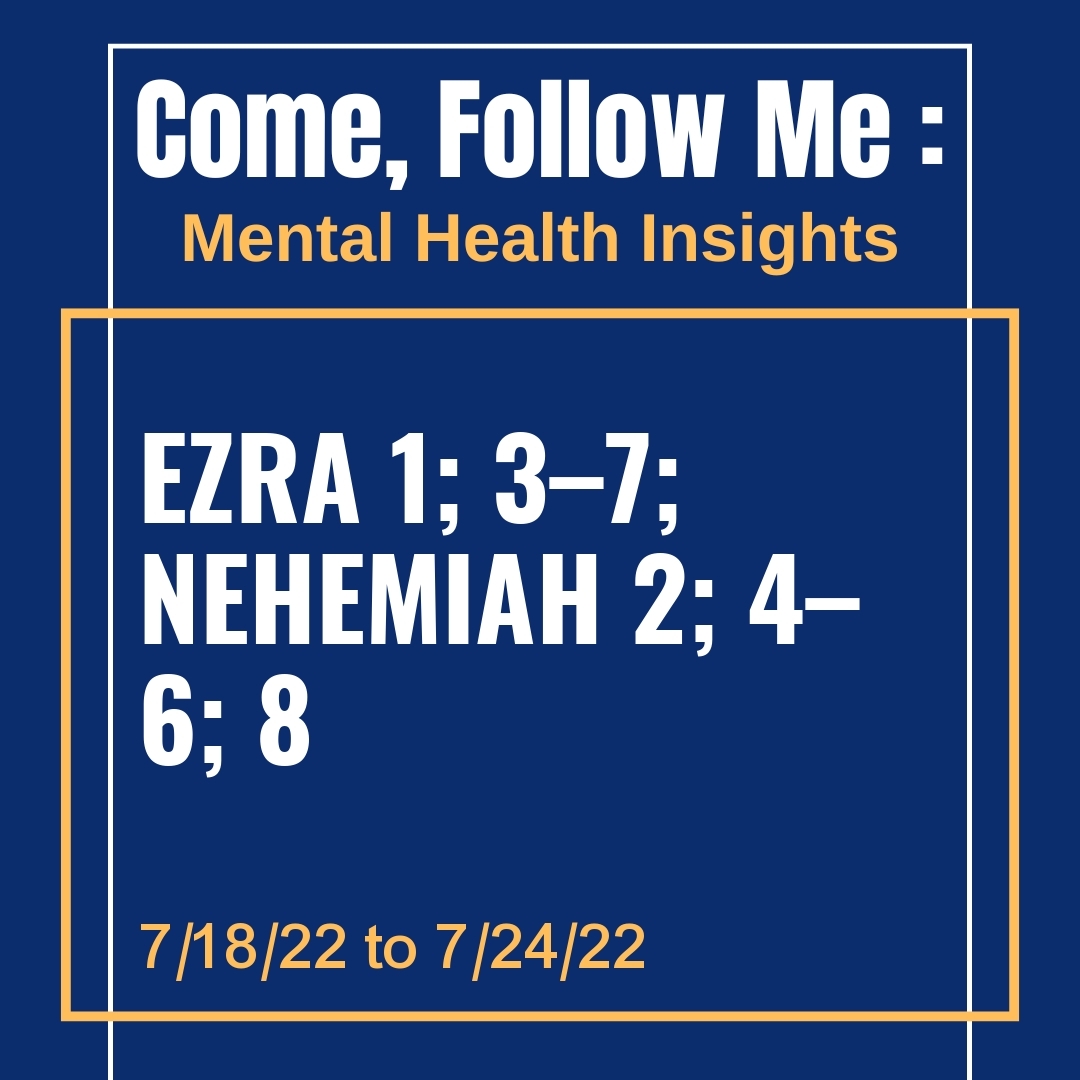Join Dr. David T. Morgan for a weekly discussion about some principles from the weekly Come, Follow Me lesson and learn specific applications to improve mental and emotional health.
In this episode we'll continue our study of the book of Isaiah. We'll discuss the concept of redemption, how it applied to the ancient house of Israel, and how it applies to us today. We'll also talk about the concept of hope and the role this plays in managing mental health trials. We will address the truth that life is difficult by design, a "furnace of affliction", and talk about the Savior's promise to help us through these difficult times. When we combine hope with work we can increase our capacity to endure difficult experiences.
In this episode we'll continue our study of the book of Isaiah. We'll talk about three different principles from the recommended reading. First, we'll discuss how effective change happens little by little over time; we have to be patient with ourselves and with our process of improvement. Second, we'll talk about how we need to choose activities that will help build our emotional and spiritual foundations. Last, we'll discuss how developing a sense of hope can help with personal improvement and give us the strength we need to carry on despite difficulty.
In this episode we'll start our study of the book of Isaiah. No other book of scripture has been more quoted by other prophets, including Jesus Christ. We'll discuss some of Isaiah's history and why this information is important today. We'll review two key principles. First, we'll discuss how we need to reach out for help from other people in order to effectively manage mental health issues. Second, we'll review the importance of becoming aware of our thoughts and adjusting them to be consistent with revealed truth.
In this episode we'll review the books of Proverbs and Ecclesiastes, which are full of wisdom and maxims to help with effective living. We'll discuss one particular piece of wisdom in Proverbs 3, where we are counseled to trust the Lord and not rely on our own understanding. We'll talk about the importance of faith in Jesus Christ as we strive to understand His plan for us. We'll also discuss how learning to align our wills with the will of God will not only yield greater happiness but will help mitigate feelings of anxiety and depression.
In this episode we'll review the last portion of the book of Psalms, which is a collection of inspired poetry and music. We'll continue our discussion of gospel truths found in these chapters that can help improve mental health functioning. This week we'll specifically review principles related to the value of keeping an eternal perspective, understanding mercy and self-compassion, and how keeping the commandments can help improve mental health.
In this episode we'll review the middle portion of the book of Psalms, which is a collection of inspired poetry and music. We'll continue our discussion of gospel truths found in these chapters that can help improve mental health functioning. This week we'll specifically review principles related to the beneficial aspects of positive change, how we need to reach out for help in our struggles, and the power of remembering.
In this episode we'll review the first third of the book of Psalms, which is a collection of inspired poetry and music. It has been called the most Christian of the Old Testament books because of the many references to the Savior. We will talk about certain truths in the recommended reading and how those truths can help with mental health issues. This week we'll specifically review principles related to self-concept, depression, anxiety, and finding lasting peace during difficulty.
In this episode we'll talk about the story of Job, which marks the beginning of the poetic portion of the Old Testament. We'll talk about the faithfulness of Job and how this was tested, first through trials that affected his affluence, and second through trials that affected his health. Some of his friends stood by him, and some of them didn't. We'll address the vexing question of "why do bad things happen to good people", questioning the concept of what is bad and considering how perspective plays into this process. We'll also talk about the Atonement of Jesus Christ and how this can provide peace and understanding during times of difficulty.
In this episode we'll talk about the story of Esther, which is one of my favorite Old Testament stories. We'll review the courage it took for her to intervene on behalf of her people, especially when the likelihood of death was high. We'll talk about how difficult tasks require courage and effort to manage. Specifically, we'll discuss how mental health issues often take a long time, with extended effort, to change for the better. This is not a bad thing, because as we engage in diligent effort over time, not only do we see results, but we learn valuable skills that will help in other matters of personal improvement.
In this episode we'll talk about the story of Nehemiah and his unrelenting work to meet his established goals. We'll discuss how he gets permission to rebuild the walls of Jerusalem, encounters opposition along the way, but continues to move forward towards his purpose. We'll talk about the power of understanding our purpose and how this can help us with our own challenges. We will also discuss how having an overall goal, or purpose, can be broken down to smaller goals and thus be more doable on a regular basis.

